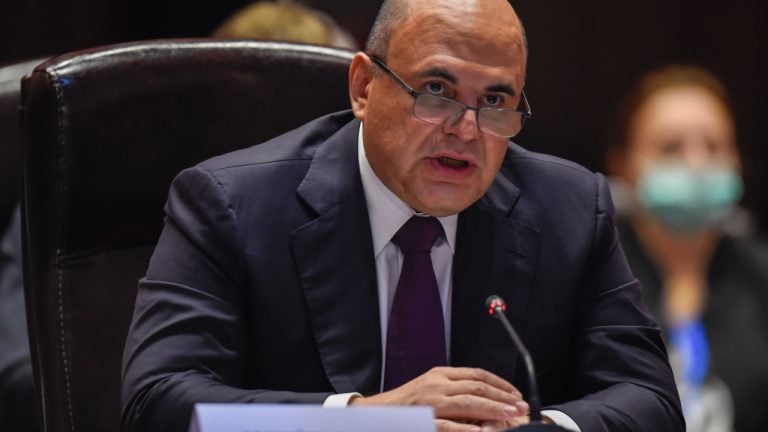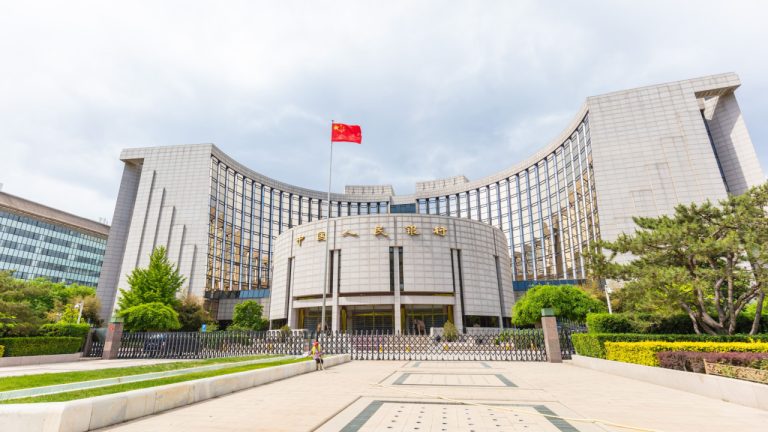 Digital currency markets, precious metals, and stocks dropped another leg down on Monday following the drop markets saw last Tuesday. Last week’s fall was one of the worst weeks in more than three months as market strategists believe a sizable Fed rate hike is coming this week. Bank of America’s analysts led by Savita Subramanian […]
Digital currency markets, precious metals, and stocks dropped another leg down on Monday following the drop markets saw last Tuesday. Last week’s fall was one of the worst weeks in more than three months as market strategists believe a sizable Fed rate hike is coming this week. Bank of America’s analysts led by Savita Subramanian […]
In a recent Twitter Spaces, Capriole Fund founder Charles Edwards told Cointelegraph that BTC could go lower, but currently reflects “incredible deep value” based on multiple price metrics.
$20,000 is no longer support.
$100,000 didn’t happen.
The Bitcoin halving is 562 days away.
Bears simply refuse to release their vice grip on the market and the Federal Reserve’s policy of interest rate hikes and quantitative tightening is adding fuel to the fire.
Despite these challenges, in a Sept. 15 Twitter Space hosted by Cointelegraph, Capriole Fund founder Charles Edwards explained why he is still bullish on Bitcoin.
Edwards suggested that several on-chain metrics suggest that BTC is undervalued and he said:
“I see incredible deep value and I kind of call it a trifecta and that we have three positive things happening in my mind. One is cycle timing, where between years two and three, which historically has been where all of the Bitcoin cycles are bottomed. The second is that we've hit 90% of normal cycle down draws. Now, obviously, all of these things can go lower, but that alone is a bit of a good value signal. And then thirdly, just the readings across pretty much all on-chain metrics, whether it be Mayer Multiple, whether it be Puell Multiple, or NVT or dormancy, everything is at kind of one in four year level discounts. So for me, it's kind of that once a cycle opportunity that we see at the moment.”
When asked about his thoughts on the previous Bitcoin halving and how the current economic environment might impact the next halving, Edwards said:
“I think it was successful because it placed Bitcoin as one of the hardest assets in the world in the midst of massive monetary printing. And we did see a lot of the old school traditional finance, legendary investors, Druckenmiller, etc. kind of get into Bitcoin because of that as it's kind of a hedge more or less. And that kind of triggered the next 6 to 12 months of rallying. I also think that the crypto industry still does run on the Bitcoin halving cycle kind of time frame. For now. I don't think they will continue forever, but for now I do still think it holds weight and impact in how people invest in the space. With each subsequent halving the incremental value of the drop in inflation for bitcoin is negligible because it's already —barring Ethereum— now the hardest asset, or harder than gold.”
2022 has proved that risk management and building a balanced portfolio is still a skillset crypto investors are working to develop. Edwards said:
“Whatever your method is, however you are trading or investing, whether using stop losses or not as a strategy. You need to do some detailed modeling over as much data as you can and not just two years of data, because that's how entities have blown up in the past. Do as much as you can, like 10 years of Bitcoin at least, and assume the worst and then add again an element of buffer below that to manage your position sizing.”
Tune in and listen to the full episode here!
Disclaimer. Cointelegraph does not endorse any content of product on this page. While we aim at providing you all important information that we could obtain, readers should do their own research before taking any actions related to the company and carry full responsibility for their decisions, nor this article can be considered as an investment advice.

Iran has decided to legalize the use of crypto in cross-border payments, which could impact how some countries view crypto.
With the Trade Ministry officially approving the use of cryptocurrencies for foreign trade, Iran will become the first-of-a-kind adopter in the world.
The obvious problem with the news is that the country’s innovative policy obviously aims at circumventing financial sanctions that have been hampering its participation in the global economy for many years.
These circumstances set an ambivalent tone for Iran’s experiment — while for some, it could prove crypto’s emancipating ability to shirk the all-too-real hegemony of the United States political will and international financial institutions that enforce it, hardline crypto skeptics could get the proof they need for their prophecies about decentralized digital assets being a weapon of choice for disrupting the fragile global order.
Putting aside the ethical debates, it is still curious to know how exactly this strategy will work, what influence it will have on Iran’s trading partners and what challenges it will draw from the hostile enforcement bodies.
The first public announcement of a trading system allowing local businesses to settle cross-border payments using cryptocurrencies in Iran came in January 2022. At the time, Iran’s Deputy Minister of Industry, Mine and Trade, Alireza Peyman-Pak, spoke of the “new opportunities” for importers and exporters in that kind of system, a product of joint action by the Central Bank of Iran and the Ministry of Trade should provide:
“All economic actors can use these cryptocurrencies. The trader takes the ruble, the rupee, the dollar, or the euro, which he can use to obtain cryptocurrencies like Bitcoin, which is a form of credit and can pass it on to the seller or importer. [...] Since the cryptocurrency market is done on credit, our economic actors can easily use it and use it widely.”
In August, Peyman-Pak revealed that Iran had placed its first import order using crypto. Without any details about the cryptocurrency used or the imported goods involved, the official claimed that the $10 million order represents the first of many international trades to be settled with crypto, with plans to ramp this up throughout September.
On Aug. 30, Trade Minister Reza Fatemi Amin confirmed that detailed regulations had been approved, outlining the use of cryptocurrencies for trade. While the full text still couldn’t be attained online, local businesses should be able to import vehicles into Iran and a range of different imported goods using cryptocurrencies instead of the United States dollar or the euro.
Recent: Crypto’s correlation with mainstream finance could bring more bleeding soon
Meanwhile, the local business community voiced its concerns over the policy’s possible design. The head of Iran’s Importers Group and Representatives of Foreign Companies, Alireza Managhebi, emphasized that stable regulations and infrastructure should be prepared to be able to successfully use cryptocurrencies for imports. He also the possible threat of the new payment leading to the emergence of rent-seeking business groups.
Speaking to Cointelegraph, Babak Behboudi, co-founder of digital asset trading platform SynchroBit Hybrid Exchange, said that although the official policy was approved only in recent years, the Iranian government and corporations have been using crypto as a payment method for a couple of years now.
But, there is a range of reasons why the government decided to acknowledge such practices on a national scale, such as the disappointment of Iranian negotiators in achieving a win-win deal with the West on the nuclear deal, the frustration of the economy and hyperinflation in the domestic market.
The emergence of the Chinese digital yuan and the Russia-Ukraine geopolitical conflict also greatly influence such a decision, Behboudi added.
There remains the question about the effectiveness of the new strategy. Almost any potential foreign partner will face difficulties in conducting the deals in crypto, as, unlike Iran, most countries do not have a legal framework for using crypto as a corporate payment method or, at worst, directly prohibit it. The pseudonymous nature of Bitcoin (BTC) and other mainstream cryptocurrencies doesn’t leave possible partners too assured of their invisibility from U.S. financial enforcement.
This leaves foreign companies with two possible options, Behboudi believes. They could use either the intermediacy of proxy companies in crypto-friendly jurisdictions to convert the crypto to fiat or use the services of companies from third countries that conduct trade with Iran, such as Russia, Turkey, China, the United Arab Emirates and others.
Christian Contardo, global trade and national security attorney at law firm Lowenstein Sandler LLP, sees the scope of Iran’s potential partners as rather limited. The ease of crypto transactions can facilitate legitimate trade, particularly in regions where traditional banking may be impractical or unreliable. But, due to the regulatory regimes involved, it is unlikely that large legitimate commercial entities would transact in crypto with Iranian counterparties “unless they were seeking to hide their involvement in the transaction,” he adds.
Up to this point, reports about circumventing sanctions with crypto in Iran were rather scarce. While Binance didn’t get any allegations after journalists claimed Binance was serving Iranian customers, another major crypto exchange, Kraken, came under the investigation of the U.S. Treasury Department’s Office of Foreign Assets Control in 2019 for the very same reasons. At least one individual is currently alleged of sending more than $10 million in Bitcoin from a U.S.-based crypto exchange to an exchange in a sanctioned country.
Recent: Boom and bust: How are Defi protocols handling the bear market?
Contardo is sure that enforcers, the United States, in particular, will increase their scrutiny of transactions linked to countries like Iran. And although, in practice, it is next to impossible to track all large transactions, they still have all the tools they need:
“Enforcement agencies and even commercial investigative services have multiple sources of information to identify parties involved in a transaction. Once that information is aggregated and the parties identified, the evidence on the ledger makes for a strong enforcement case.”
Given recent announcements by Russian officials, who are also actively exploring the potential of using crypto for cross-border payments, the Iranian strategy may initiate the digitalization of a parallel market, which would include sanctioned countries and the nations that are willing to trade with them. Behboudi links this possibility to the further development of central bank digital currencies (CBDCs):
“The rise of CBDCs, like digital yuan, ruble, rial and lira, can minimize the risks if these countries can manage their transactions through bilateral and multilateral agreements, allowing the businesses to deal with each other using their CBDCs.”
Thus, in a way, Iran’s innovative strategy of adopting crypto as a cross-border method doesn’t change much — unless the use of decentralized currencies as a method of payment for private companies is allowed — this loophole would attract a limited list of nations that haven’t shy away from the trade with Iran earlier.
 The central bank and the finance ministry in Moscow have been asked by the head of the Russian government to agree on a vision for the development of the country’s digital asset market by Dec 1. Working with other regulators, they should also present a common position on the legislation needed to regulate it. Pressed […]
The central bank and the finance ministry in Moscow have been asked by the head of the Russian government to agree on a vision for the development of the country’s digital asset market by Dec 1. Working with other regulators, they should also present a common position on the legislation needed to regulate it. Pressed […] Foreign nationals should be able to buy Russia’s upcoming digital ruble through entry points providing anonymity, according to a high-ranking member of the Russian parliament. The idea circulated in Moscow aims to protect these investors from Western sanctions. State Duma Deputy Proposes Anonymous Digital Ruble Purchases to Avoid Sanctions Foreign investors should be provided with […]
Foreign nationals should be able to buy Russia’s upcoming digital ruble through entry points providing anonymity, according to a high-ranking member of the Russian parliament. The idea circulated in Moscow aims to protect these investors from Western sanctions. State Duma Deputy Proposes Anonymous Digital Ruble Purchases to Avoid Sanctions Foreign investors should be provided with […] A crypto company working with the central bank of Norway has published the source code for the sandbox created to trial the digital version of the Nordic nation’s fiat currency. The prototype digital krone is being built on the Ethereum network and the regulator wants to test various technologies and evaluate the potential impact on […]
A crypto company working with the central bank of Norway has published the source code for the sandbox created to trial the digital version of the Nordic nation’s fiat currency. The prototype digital krone is being built on the Ethereum network and the regulator wants to test various technologies and evaluate the potential impact on […]
The kingdom in the Persian Gulf is taking its latest step in transforming its economy away from oil with the Bitcoin and Lightning Network infrastructure provider’s trial.
Bitcoin infrastructure provider OpenNode will test a Bitcoin payment processing and payouts solution in the Central Bank of Bahrain’s (CBB) regulatory sandbox, the company announced Sept. 13. This is the latest of several steps the kingdom has taken to join the crypto economy both on its own and as a member of the Cooperation Council for the Arab States of the Gulf (GCC).
OpenNode will provide the first Bitcoin (BTC) infrastructure in Bahrain, although the Gulf island nation has been luring fintech companies to its shores for the past several years as it transitions away from an petroleum-based economy. OpenNode CEO and cofounder Afnan Rahman called the agreement with the CBB, "a watershed moment for the people of Bahrain, the Middle East and the Bitcoin economy as a whole.”
Bahrain Economic Development Board Investment Development for Financial Services Executive Director Dalal Buhejji commented on the addition of OpenNode to the CBB sandbox:
“As a country, we have always been ahead of the curve in adopting Fintech solutions thanks to our regulator's flexibility and forward thinking.”
Nonetheless, Bahrain is unlikely to edge out Dubai as the most crypto-forward in the Gulf region.
The CBB set up a regulatory sandbox in 2017 and enhanced it in 2021. Also in 2021, Bahrain licensed the local Sharia-complaint crypto exchange CoinMENA.
Related: Bahrain is Eyeing at Becoming Middle East Pioneer in Blockchain
This year, the CBB licensed Binance to operate in the country, making Binance the first international crypto exchange to receive a license in the GCC. It also partnered with JPMorgan Chase’s crypto unit Onyx to create an instant cross-border payment solution.
"This is a watershed moment for the people of Bahrain, #Bitcoin economy as a whole.
— GemCryptoFather (@GemCryptoFather) September 13, 2022
OpenNode's leading #BTC infrastructure solution continues to pave the way for countries, governments and reputable financial institutions to adopt the #Bitcoin"- says CEO & Co-Founder at OpenNode https://t.co/0Sup54AF4j
OpenNode is currently active in more than 160 countries, including El Salvador. The company was founded in 2018 with financing from venture capitalist Tim Draper and his Draper Capital.

The Uruguayan government introduced legislation to the parliament on Sept. 5, accelerating industry regulation.
The Uruguayan government has introduced legislation to the parliament that accelerates the regulation of the crypto space in the country and establishes the central bank as the regulatory authority.
Introduced on Sept 5, the bill strives to clarify the country's regulatory framework for cryptocurrency assets, stating that all companies that provide digital asset-related services, including initial coin offerings (ICOs) are under the supervision of the Superintendency of Financial Services (SSF), a central bank entity. Cryptocurrency exchanges, custody services and any financial services relating to these digital assets should also adhere to Anti-Money Laundering regulations and best practices.
Additionally, the document defined four types of digital assets: stablecoins, governance tokens, tradable assets and debt tokens, saying:
"If the activity carried out with these instruments involves the exercise of financial intermediation or financial activity, it will be subject to the regulation and control of the Central Bank of Uruguay."
Last year, Uruguayan Senator Juan Sartori introduced a draft bill to regulate cryptocurrency and enable businesses to accept digital payments, seeking to “establish a legitimate, legal and safe use in businesses related to the production and commercialization of virtual currencies.”
This development is part of an ongoing wave of legislation or regulations being pursued by governments or legislators in Latin America. Brazil's Securities and Exchange Commission is reportedly pursuing to change its legal framework to recognize tokens as digital assets or securities. In August, Paraguay’s president vetoed a bill that sought to recognize cryptocurrency mining as an industrial activity, arguing that mining’s high electricity consumption could hinder the expansion of a sustainable national industry.
 According to the National Bank of Ethiopia’s directive, which became effective on September 5, persons entering and departing the country in possession of local currency are now subject to new restrictions. Individuals may not hold local currency whose value exceeds $57.00 or 3,000 birr. The directive also sets conditions and circumstances under which Ethiopian residents […]
According to the National Bank of Ethiopia’s directive, which became effective on September 5, persons entering and departing the country in possession of local currency are now subject to new restrictions. Individuals may not hold local currency whose value exceeds $57.00 or 3,000 birr. The directive also sets conditions and circumstances under which Ethiopian residents […] The People’s Bank of China has urged for widening of the array of use-case scenarios for its central bank digital currency. The monetary authority believes that deeper interconnection with traditional e-payment platforms will make the digital yuan more convenient for consumers. China’s Central Bank Insists on Expanding Digital Yuan Environment The monetary policy regulator of […]
The People’s Bank of China has urged for widening of the array of use-case scenarios for its central bank digital currency. The monetary authority believes that deeper interconnection with traditional e-payment platforms will make the digital yuan more convenient for consumers. China’s Central Bank Insists on Expanding Digital Yuan Environment The monetary policy regulator of […]